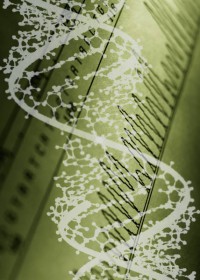
With a recent study and headlines worldwide trumpeting that cancer is caused by bad luck, the World Health Organization just rebutted this claim in this recently published press release:
“The International Agency for Research on Cancer (IARC), WHO’s specialized cancer agency, strongly disagrees with the conclusion of a scientific report on the causes of human cancer by Dr Cristian Tomasetti and Dr Bert Vogelstein, published in the journal “Science” on 2 January 2015 and widely reported in the mass media.
The study suggests that random mutations (or “bad luck”) are the major contributors to cancer overall, often more important than either hereditary or external environmental factors.
“We already knew that, for an individual to develop a certain cancer, there is an element of chance, yet this has little to say about the level of cancer risk in a population,” explains IARC Director Dr Christopher Wild. “Concluding that ‘bad luck’ is the major cause of cancer would be misleading and may detract from efforts to identify the causes of the disease and effectively prevent it.”
While at Issels we know that certain measures can help reduce your risk of cancer, such as wearing sunscreen and not smoking, the researches slammed by the WHO stated that roughly two-thirds of cancer types result from random DNA mutations instead of high-risk behavior or heredity. The press picked this up as cancer simply caused by your own “bad luck”.
Mutations vs. Genetics
The study that was mentioned by the WHO included 31 types of cancer, and results showed that 22 of them were associated with random DNA mutations. These included brain, pancreatic and ovarian cancer. The nine types that weren’t linked to these mutations included skin cancer, lung cancer and other cancers that are more strongly associated with risk behaviors, environmental factors and heredity.
Why Would WHO Slam This Report?
The World Health Organization states that “According to current knowledge, nearly half of all cancer cases worldwide can be prevented.”
We don’t believe, like the WHO, that cancer is your fault. Get the facts and information you need on non-toxic ways to treat cancer at Issels. We offer a wide range of safe, effective methods, including cancer immunotherapy treatment.
